X
HGG Community Forums
Log In to HorseGeneticsGame
HGG Community Forums
Join our discord server!
Howdy, Stranger!
It looks like you're new here. If you want to get involved, click one of these buttons!
Categories
- All Discussions68,241
- Announcements356
- HJ2 Discussion67,060
- ↳ New Member Introductions569
- ↳ Help me out3,469
- ↳ Horses For Sale and Auction12,515
- ↳ Breeding Ads and Sales3,456
- ↳ Herd Helper39,570
- ↳ Bug Discussion120
- ↳ Repair Log12
- General Discussion825
- ↳ Saddle Sisterhood32
- ↳ Games, Contests and GiveAWays54
- ↳ Genetics245
In this Discussion
- AshaWindsong May 2018
- BurntHillCreek July 2018
- CeffylDwr May 2018
- Cheers December 2018
- CrewCut August 2018
- duelinghawks August 2018
- Ellesmere022 August 2018
- FallenShadows714 May 2018
- FeldingFields December 2018
- Haltanny November 2018
- HollowbetheInk August 2018
- Lallyhop November 2018
- ObsidianKitsune November 2018
- Ren November 2018
- RipshinCreekFarm May 2018
- RubyJoFarm November 2018
- TaosRun August 2018
- TrueBlueHorses October 2018
- Waldgraf November 2018
- wendolyne November 2018
- Wolvevenfrosst November 2018
Who's Online (0)
Help with the Color genes in this Stallion
-
I am not really great at the different color genes and I could use some help with this one that I added the blue and red axiom genes. What colors does he carry? Also what color genes would I be able to add to him?I haven't decided yet so I haven't used him for breeding. Thanks.
-
Link to the stallion?
-
Sorry.lol. Head is on the moon.

RS Technicolor Dream Coat -
Gold Champagne Roan Dun Splash Tobiano Frame Appaloosa Rabicano. Carries one copy of silver and bay, which does not affect the chestnut base.Thanked by 1wendolyne
-
ee = Red based
Aa = Het classic bay -> dominant over a
CC = No diluting genes
dD = Het dun, dominant over d
gg = No grey
ff = flaxen (hom recessive)
SS = No darkening genes
Pp = het pangere -> dominant over p
Zz = Het silver. Only shows with a copy of E
chCh = Het champagne. Dominant over ch and all other "base" colours. The type of champagne is affected by ee Aa, resulting in Gold (as Ripshin says)
Kit^r/kit^to = het roan, het tobiano. Both are expressed.
SpSps = het splash.
LL^lp = het appy
ECA3P+ = hom for this (I'll try to bring out a thread that explains the expressions of appy better than I could ever do)
rbRb = het rabicano
OlwO = het frame. Hom lethal
NrNb = Axiom colours, as I'm sure you know.
Het = not the same.
Hom = the same.
I like to think of it as sexuality. If someone is homosexual, they like the same gender as them, and if they are heterosexual, they like the opposite gender.
Producer of Volcanic Glass Drafts. Lapisobsidianus.
Prices are almost always negotiable.Thanked by 1wendolyne -
I thought I bookmarked the specific thread but nope...this one explains it a bit: http://hj2.huntandjump.com/forum/discussion/35295/frosted-horse#Item_5Producer of Volcanic Glass Drafts. Lapisobsidianus.
Prices are almost always negotiable. -
So Wendolyne, I promised I would do a bit of a discussion of the genes for you. This might be helpful for anyone who is struggling a little with figuring out the genetics in the game.
So let’s start at the beginning!
E/e
E is completely dominant to e.
E means the horse can have black and red coloring, and is often referred to as “black based” in game.
e means the horse can have only red coloring and are “red based” in game.
Examples of E horses:
Black
RT HET KP2 2G
Brown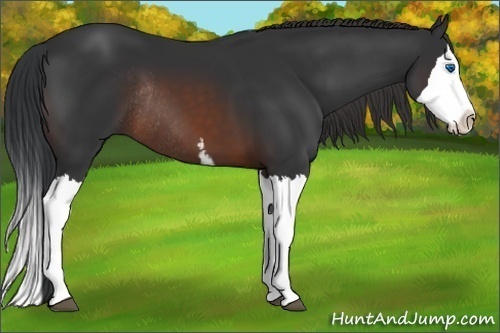
RT Major Milestone 2
Bay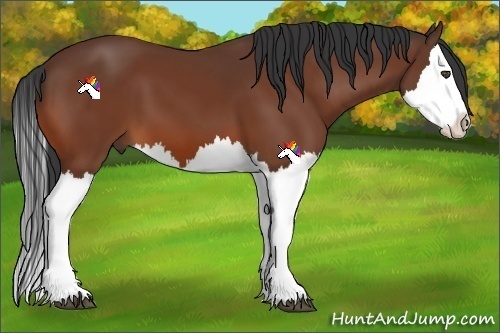
I Grew Up
Silver buckskin pearl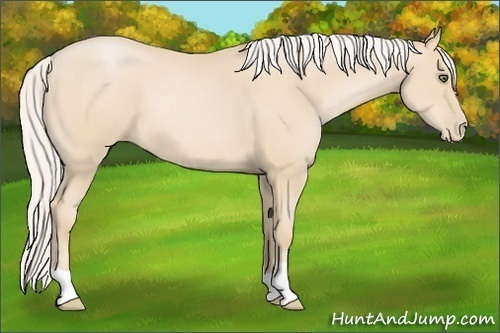
1010052
Examples of e horses:
Chestnut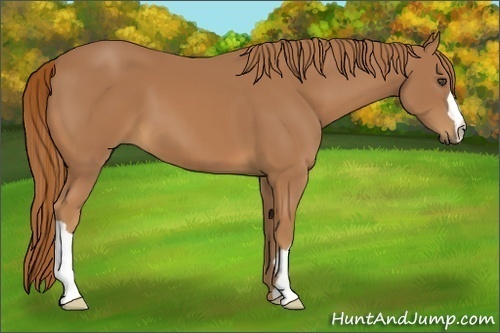
What Even
Red Dun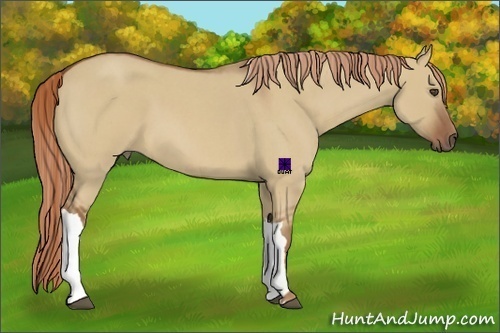
SH 1010432
Chocolate Palomino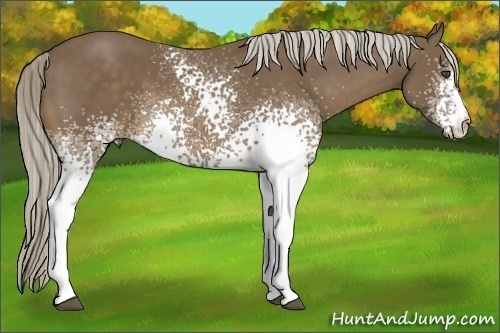
ES R II Meteor Shower wr
“Black” Liver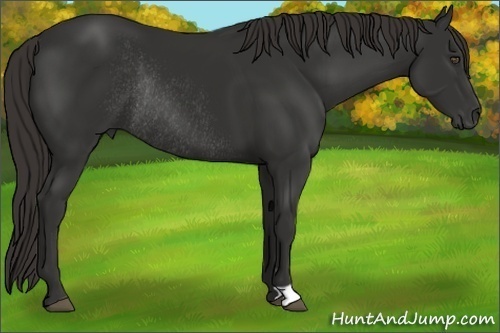
Event of the Season
-
So as you can see, just because a horse has E doesn’t mean it can’t be quite quite pale, and just because it’s ee it doesn’t mean it can’t be virtually black.
-
So the next gene down the line is Agouti. Agouti is also known as bay or “bay based”. Agouti ONLY turns “on” if the horse has E. An ee horse carries dominant Agouti alleles “silently”.
Agouti has 3 dominant alleles, each with a varying degree of dominance. It also has one recessive allele.
A+ is “wild bay” but is just called “bay” in the color name. A+ is the most dominant of the Agouti alleles and will override all of the other A versions. Wild bays have very minimal black socks on their legs and generally minimal black points overall.
Wild bays: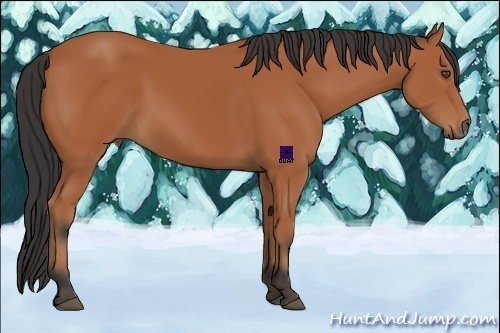
SH 1012631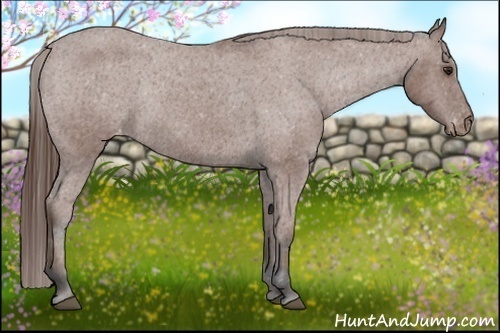
2 Nono Fudge
A is “bay”. It’s what most of us think of when we think “bay”—a reddish or brownish horse with tall black stockings, black mane and tail, black muzzle. This is “overwritten” by wild bay but is dominant to the third Agouti allele.
Bay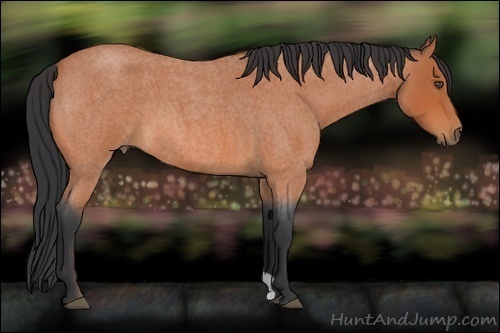
RL Griquet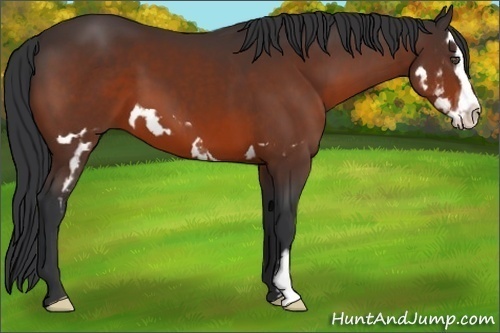
Rhythm N Blues 7G B F
At is “brown”. Sort of. So, At is weird. At is “incompletely dominant” which means the coat color will look different if there is one or 2 copies of At. Two copies of At is “stronger” and looks more like a dark plain bay, while only one gives you a mostly black horse with a reddish or brownish belly. In addition, a horse that is Hom for At and has no dominant sooty will be called “bay” by the game and will look very much like a bright or light bay.
AtAt with no sooty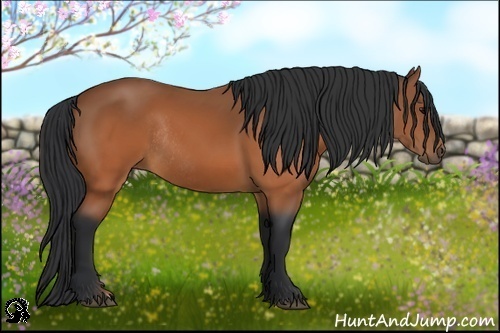
FR Lori
AtAt with sooty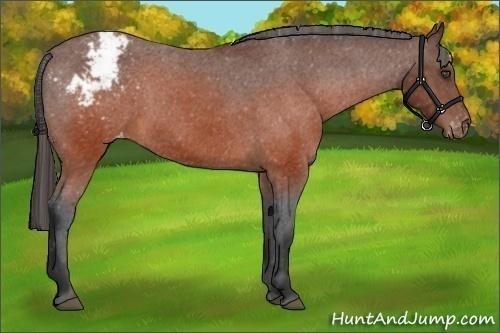
Getting it Done
Ata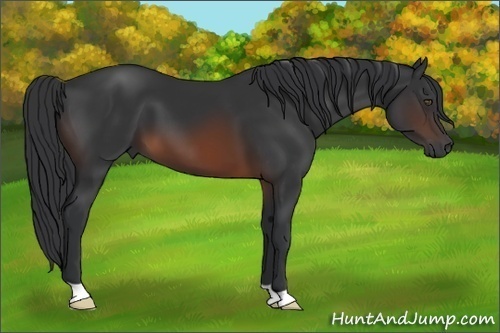
PM Frozen Redemption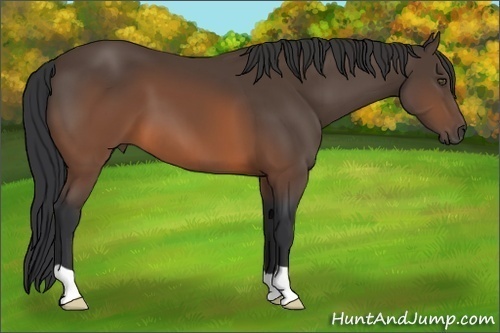
Ms Dark Zeph sh -
I will come back and do the next couple of genes after dinner. I will try to keep on doing a few genes each day until I’ve covered all the alleles in the game.
-
Ok, sorry, the dog was super sore after her follow up X-rays from her knee surgery and I had a little 24 hour freak out there. She’s ok and I’m back!
-
@Cheers glad to hear she's ok!God grant me the hbs to buy the ponies I need,
The fortitude to resist the shiny ones I truly don't,
And the wisdom to know there will always be more next time.
Shield Maiden. Chiari Warrior. Sometime Equestrian. *47002*
Tir Na Nog Stables - Home of Hooligans, Shenanigans and Mischief. Purveyor of Oddball RS. Hoarder of A Rhythm Of Fours.Thanked by 1Cheers -
Next gene is Cream/Pearl. So these are “modifier” genes. Cream and Pearl act on the base coat color to lighten it. Cream and Pearl are also both incompletely dominant, so having two copies of a gene, or having one copy of cream and one of pearl, is stronger than just having a single modifying allele.
So our alleles are
C (no change to coat color)
Ccr cream
Cprl pearl
Ccr is stronger than Cprl. Cprl when alone (Cprl C or C Cprl) is silent, while Ccr alone lightens the coat somewhat.
So: C Ccr
Smokey Black (minimal visual effect to coat)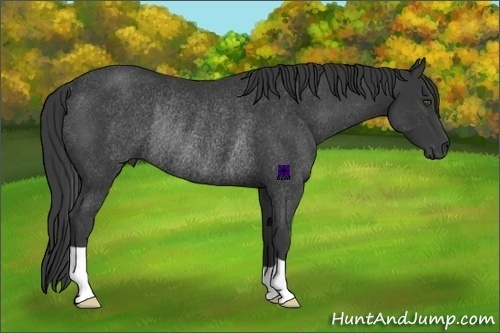
SH 1010065
Buckskin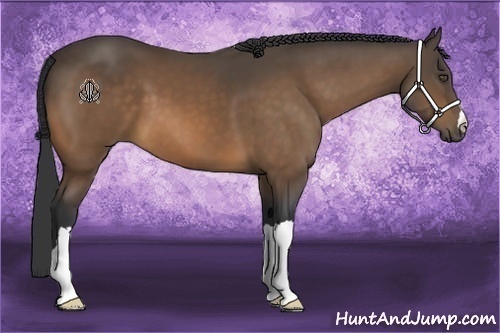
Fleur Buckle
Palomino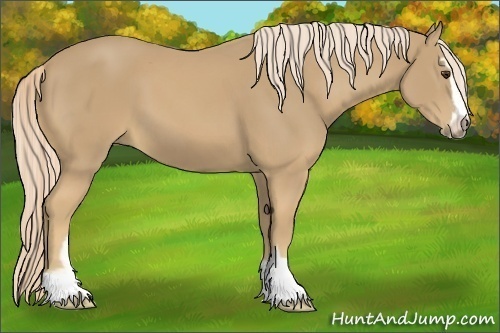
AS2 Little Full On
Homozygous Cream:
Smokey Creme (black Hom cream)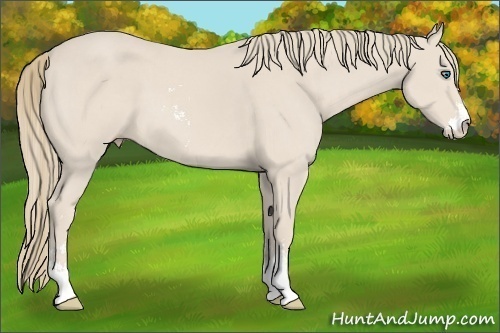
1011315
Perlino (bay/brown base)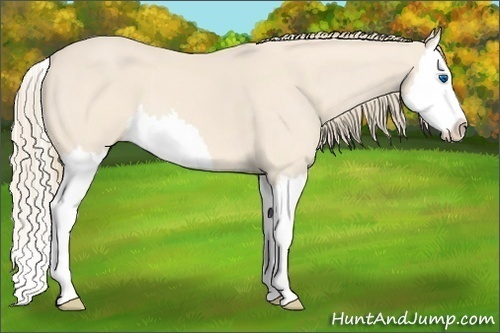
G2 China Girl
Cremello (red base)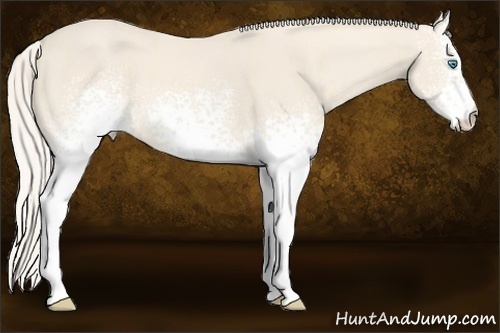
KF Milestone Harvest
Pearl
So C Cprl makes no clear difference: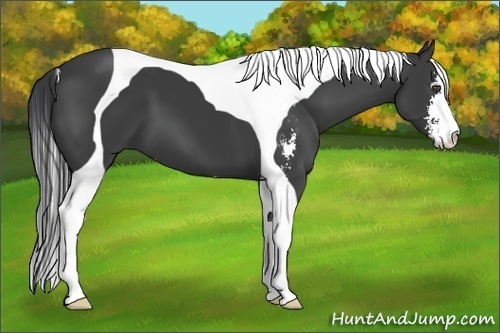
9g Niquels Sparrow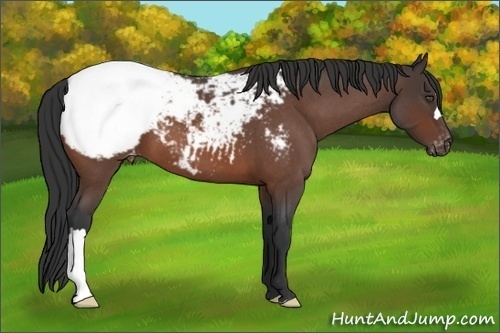
Quarouble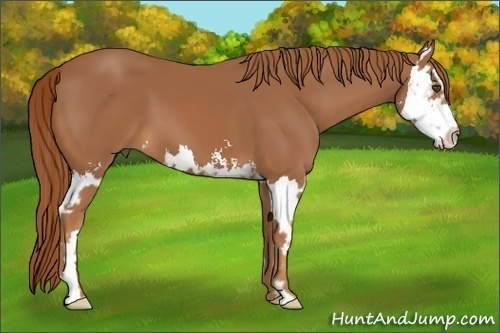
November U
Hom Pearl (Cprl Cprl) lightens the coat and gives it a pearlescent sheen. I think in real life this effect has something to do with hollow hair shafts?
Black Pearl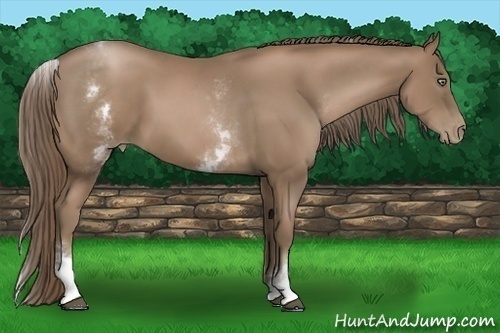
OUAT3 Coco Pearl U
Bay Pearl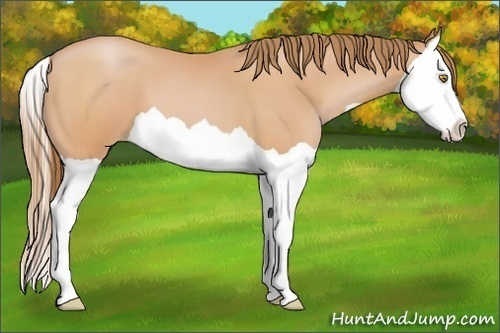
1011753
Chestnut Pearl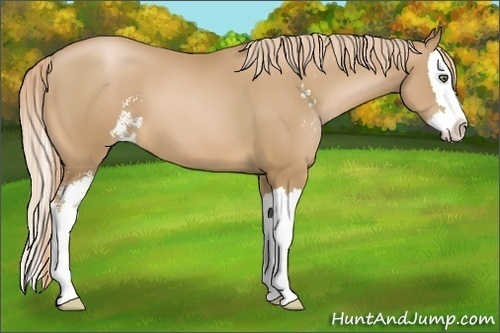
1011749
If you get both pearl and cream together, you get a PseudoPearl effect. The coat is lightened more significantly than with just Hom Pearl, but you get that pearly shine effect as well.
Smokey Black Pearl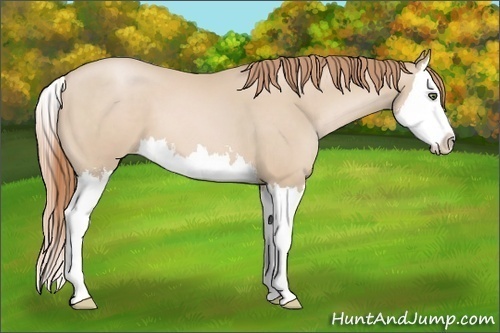
Star jynx X Lexus
Buckskin Pearl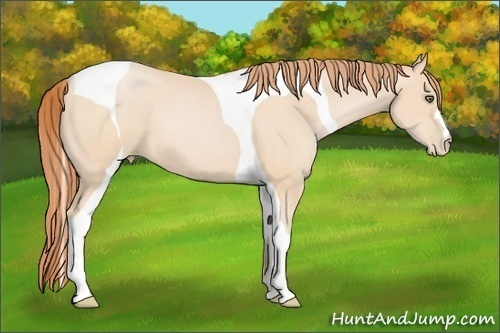
2Kp Chance The Night
Palomino Pearl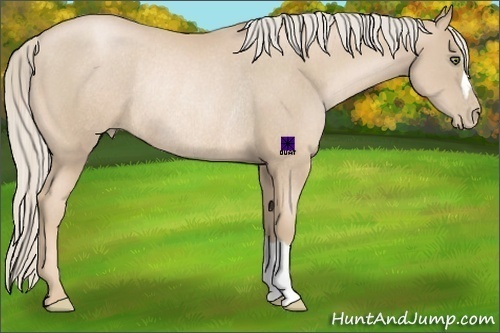
SH OUAT3 Coco China -
So Cream/Pearl was a little complicated, but the next gene is super simple.
D/d
Dun is a simple Dominant/recessive relationship. Dun causes “primitive markings” on a lightened base body color, but with the normal color mane and tail. The primitive markings include a dorsal stripe along the back bone and “bars” or zebra like stripes on the upper legs, just above hock and knee.
So Dun:
Grullo (black based Dun)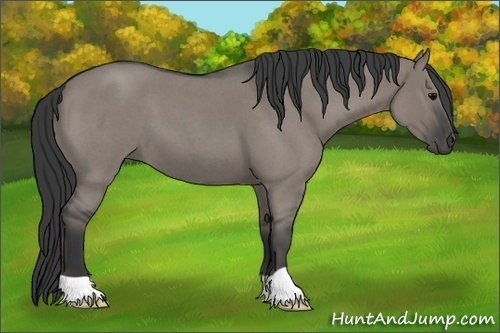
WFF Coconut Chicken
Bay Dun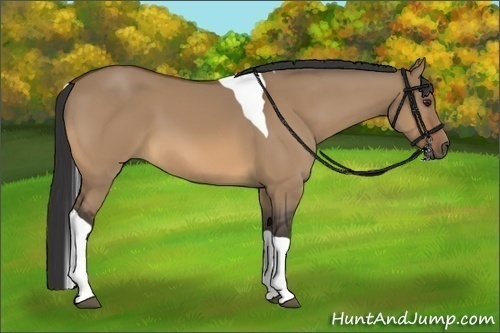
ER Tennessee Inn
Red Dun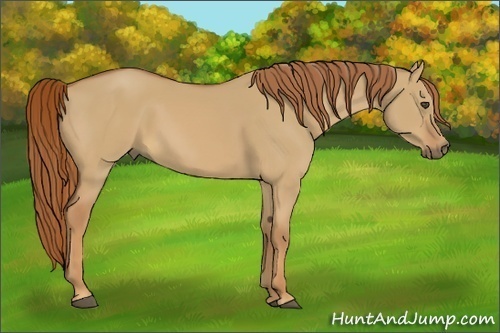
AFd2d2
Liver red dun with flaxen mane and tail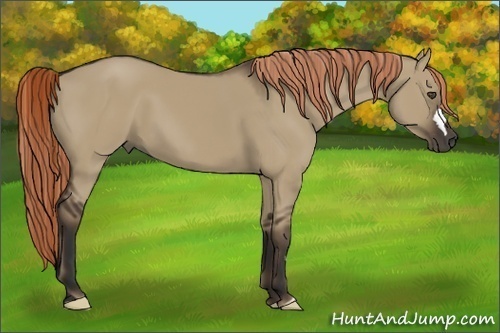
SCP 1085951
Please note that the base color range for any specific darkness of Dun may be wider than you expect. Also, dun and appaloosa do some strange things together. -
((I'm just going to pop in quickly to say that het pearl DOES interact with a horses coat by lightening it up slightly. But it is ever so slightly and I only notice it on livers))Producer of Volcanic Glass Drafts. Lapisobsidianus.
Prices are almost always negotiable. -
((I’ve noticed minimal lightening effect on wild bays as well, but in all of these cases it seems to be within the normal range for the color so may just be the effect of the coat rerolling when you add pearl))
-
Ok. Next gene is super simple.
G/g
Gray is a simple Dominant/recessive gene. Gray overrides all other base color and color modifier genes (though grays may have patterns). A homozygous gray (GG) horse will ALWAYS have gray foals.
Grays in the game will slowly white out as they age, so dark grays will slowly get darker. Grays’ portraits will refresh each year as a result.
A couple of grays: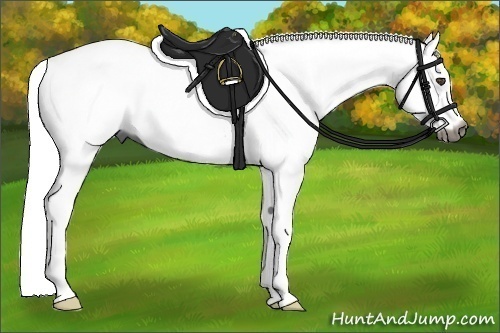
BBF Sorcerers Siesta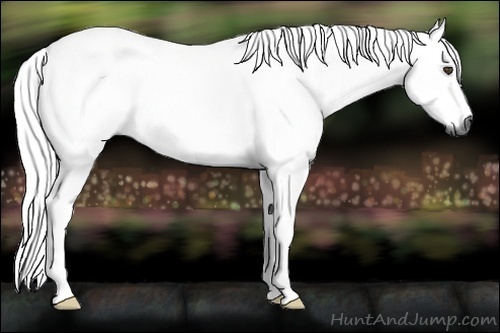
DZ Lryical Blast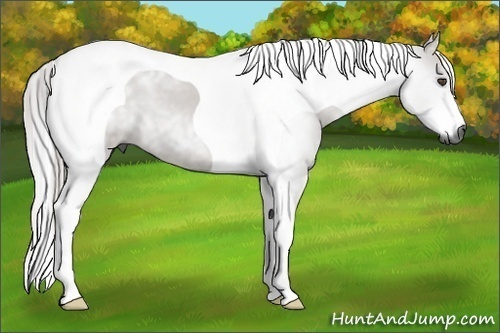
RM Liberty Tolls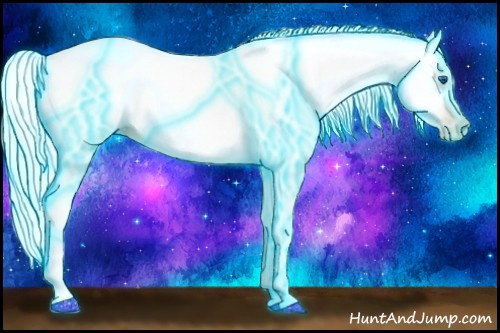
AA ExPro Sp2
As you can see, there is some variation in the undertones of the grays based on their base color and how dark that base color is. -
The next gene is Flaxen.
F/f
Flaxen is recessive, so for a horse to be flaxen it must be ff. Flaxen only shows up on red based horses. It will be silent on black and bay base colors. Flaxen lightens the mane and tail but not the body coat on red based horses. It isn’t particularly noticeable on palominos or cremellos, since the mane and tail are already lightened on those horses, but it is quite noticeable on chestnuts, liver chestnuts, red duns and liver red duns.
A Ff or fF horse carries but does not express flaxen.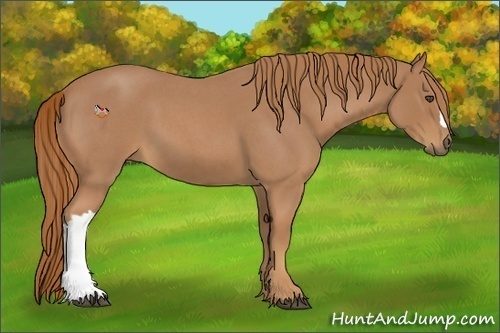
ExShow Dues
But an ff red based horse shows the lighter mane and tail: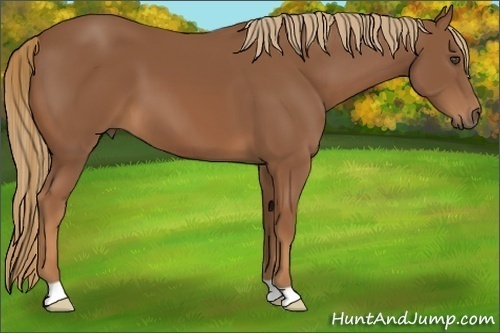
No Remorse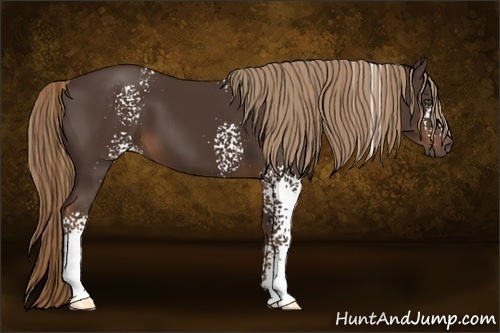
2G Independent Paint W8dp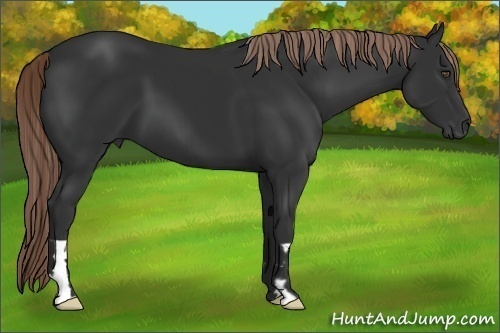
ST G2 Thomas Edison B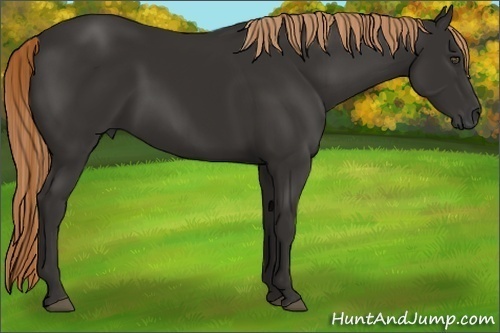
AHH Superman L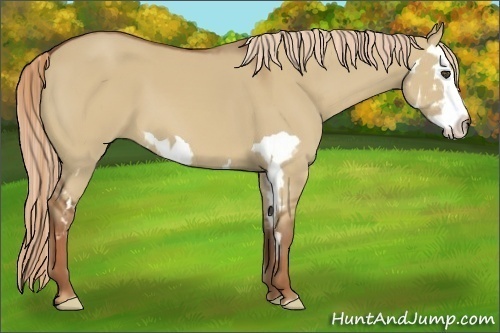
Lucky Dun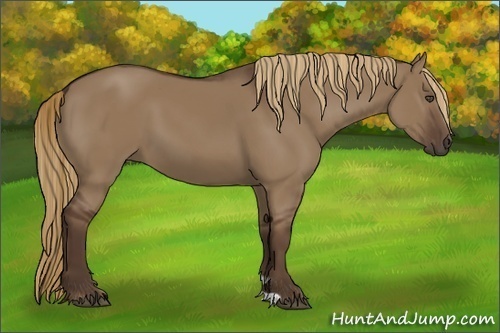
HypxDirty
As you can see, flaxen manes and tails can cover a range of blonde shades, from straw yellow to rusty reddish to almost a silvery shade.
-
Can nexus be added to the stallion ?
-
No. He is homozygous Axiom and Axiom and Nexus live in the same place.Thanked by 1wendolyne
-
And I will jump in and do the next gene here but I’m trying to cull some foals first so I can move the next batch out of my pasture!
-
Ok. All of my foals are out of pasture and I’m down to the last handful of fillies to cull. Let’s do this!
-
Sooty is the next gene. Sooty is incompletely dominant, meaning that if you have two darkening genes, the horse will be darker than if you just have one. There are two different darkening alleles at this locus, Ssty and S+. They both darken the coat but they act a bit differently.
So first, let’s look at “bright” or “Light” versions of the basic coat colors. I’m going to add buckskin and palomino to our list here because S+ does some fun stuff with them. Bright or Light coat colors are SS for no sooty.
Bright Black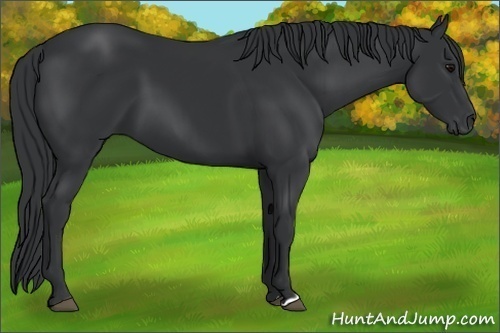
LC1 Silver An Sunshine
Bright Bay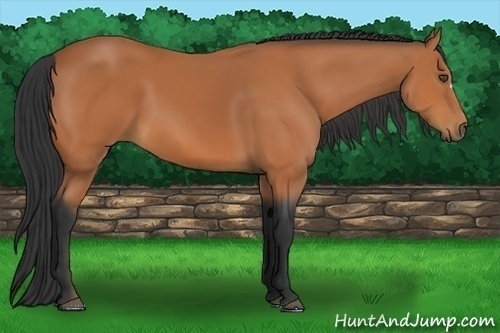
1149792ex perfect
Bright Buckskin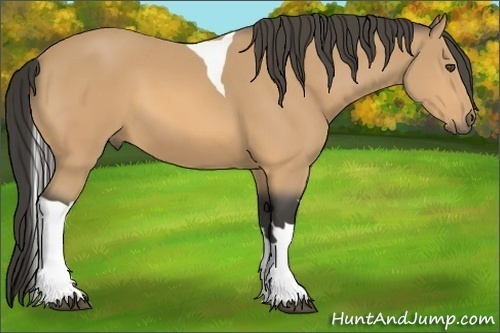
White Star KP
Bright Chestnut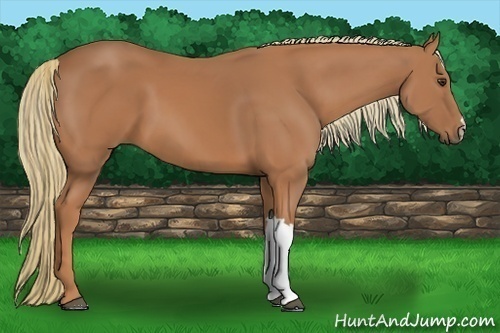
1149795ex perfect
Bright Palomino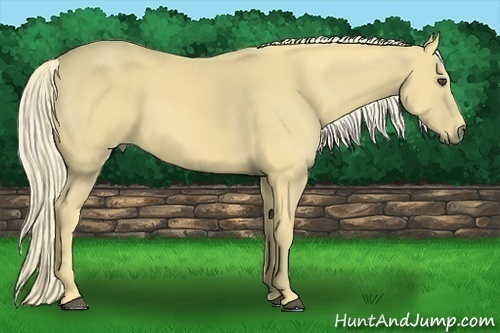
1W B104 p ExcSun
Het Sooty examples:
Het Sooty Black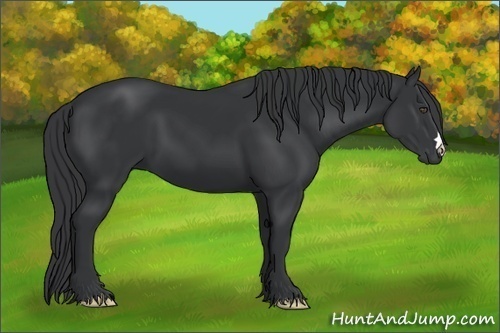
ExShow 1150089blk1g
Het sooty Bay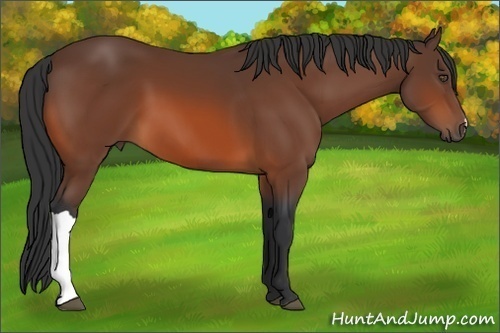
ER First Wave
Het Sooty Buckskin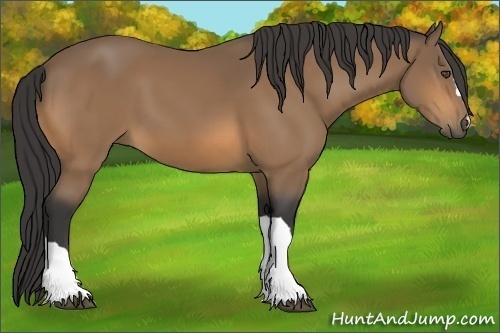
1156152
Het Sooty Chestnut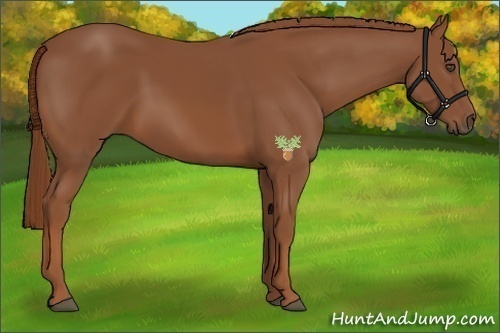
Showing 1150208
Het Sooty Palomino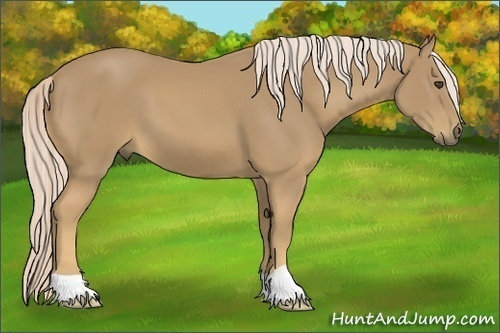
1156201 -
As you can see above, just one darkening gene can make a major difference to coat shade.
Here are homozygous Sooty examples:
Dark Black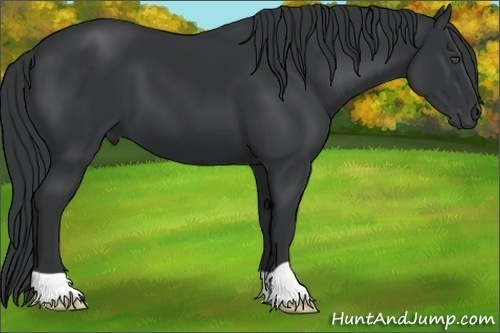
1967
Dark Bay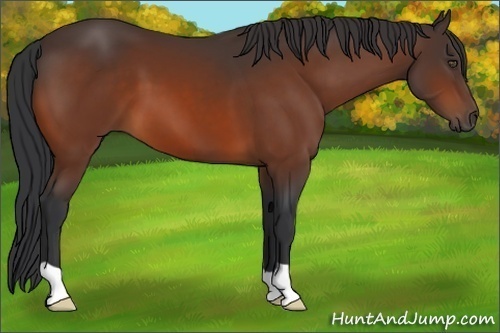
RW FallenStar G3
Dark Buckskin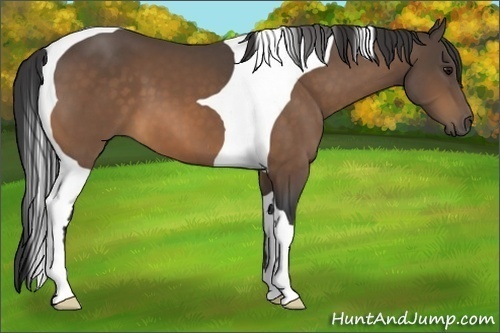
S Wine Obsession t4
Dark Chestnut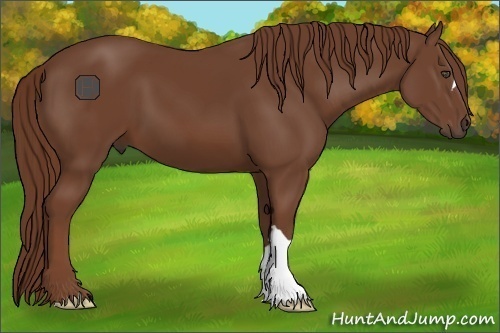
HC Red Prince U
Dark Palomino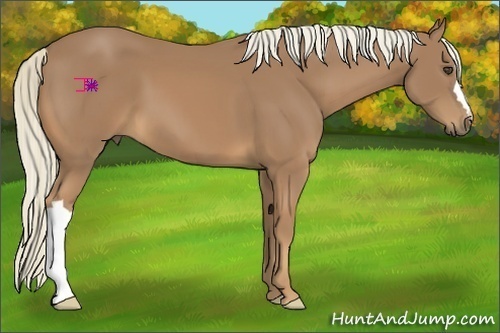
Painted godiva
Now, S+ also darkens the coat. But where Ssty seems to darken the coat all over, S+ seems to darken the most at the topline and less on the belly/underside of the neck. It darkens in a distinctively mottled/dappled pattern different from “normal” dapples. In addition to adding in black hairs to darken the coat, it also seems to pull out the highlights too, giving an almost golden glow especially to buckskins and palominos.
Het S Het S+:
Black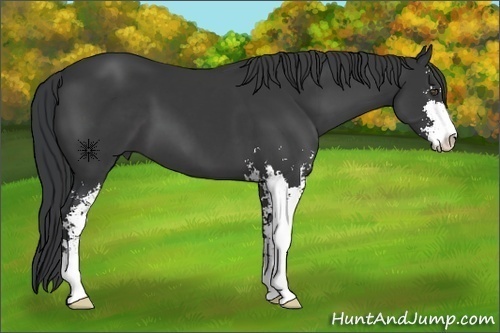
1155442
Bay: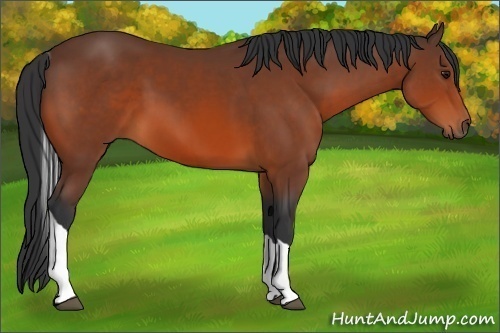
FWR Hot Wheels
Buckskin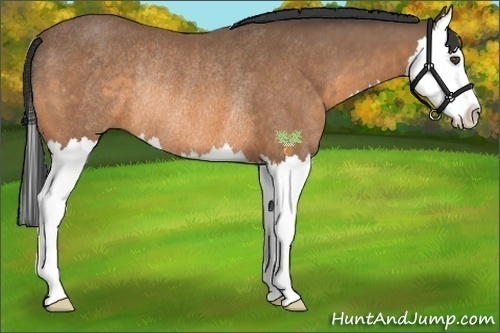
Showing 1168768
Chestnut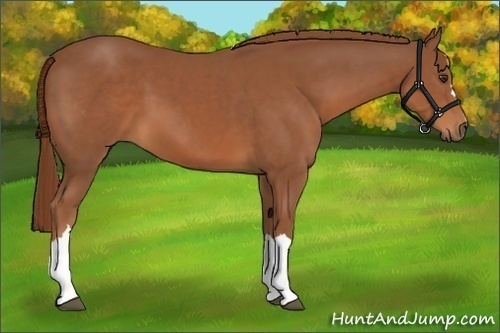
Cozy Isnt She 4
Palomino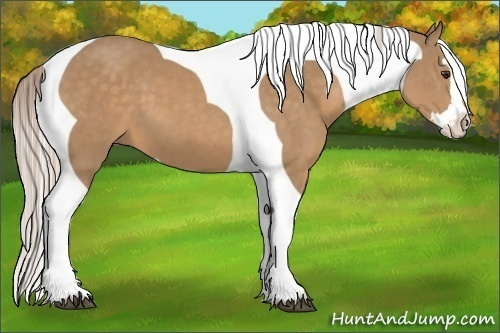
G2 SS Wild Berry KP -
S+ and Ssty are even darker
Black (which really just doesn’t change with any of the darkening genes...Smokey black, grullo and other black dilutions will, but Black is black...if I squint hard I can convince myself I see S+ mottling maybe)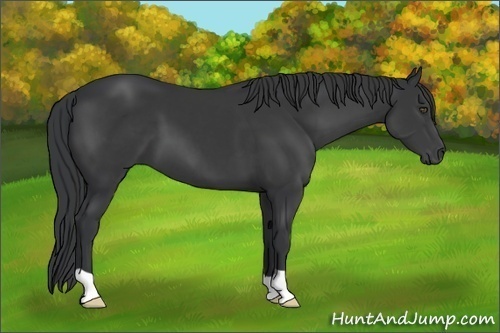
1155395
Bay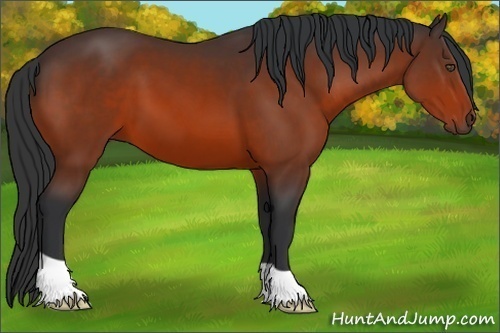
Queens Wish
Buckskin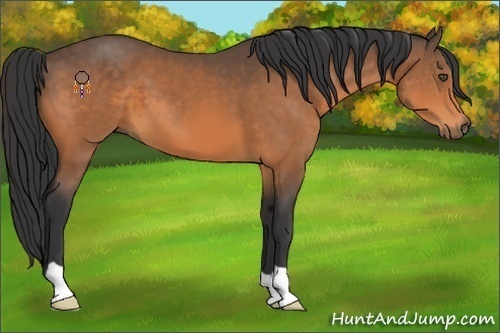
5g Dreamers Be
Chestnut (talk about a copper penny bright coat!)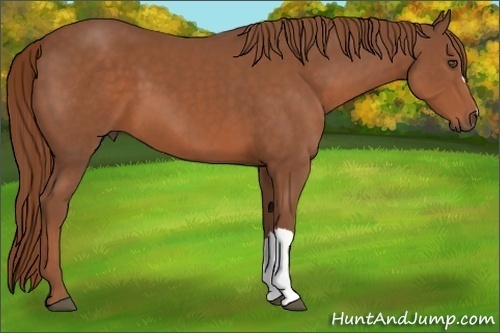
X KOLEY GUACAMOLE
Palomino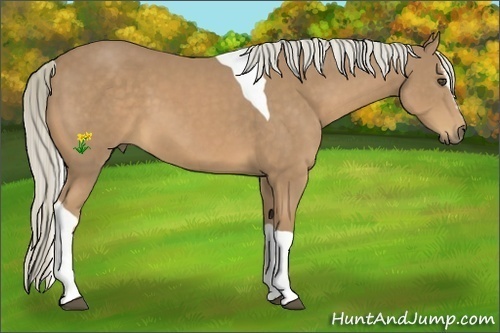
Sour Cream 2
Hom S+
Black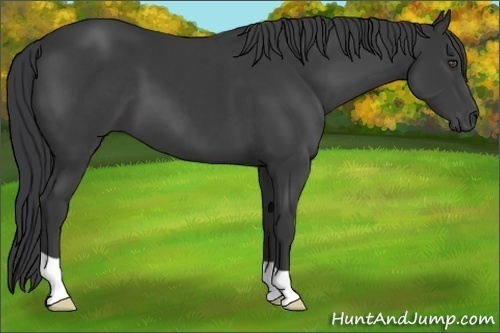
3G Sonic Gold SxSx
Bay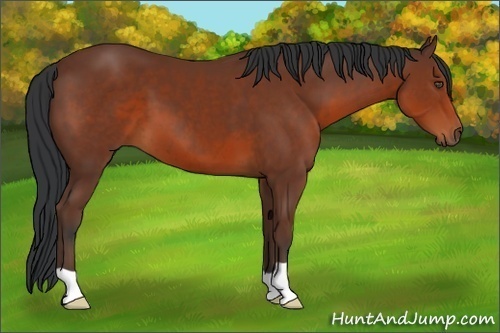
1214702
Buckskin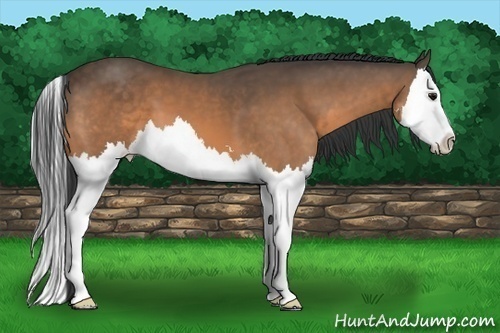
1630661
At Buckskin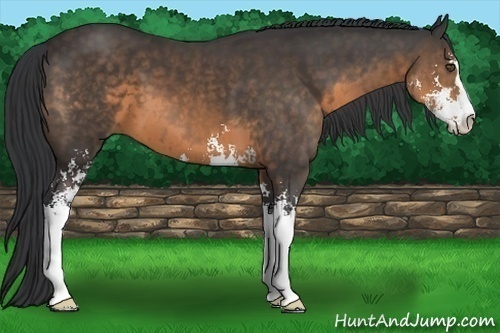
1190866
Chestnut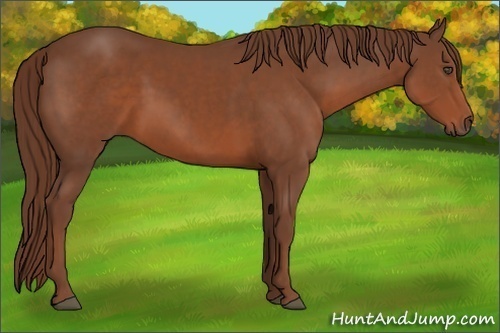
1236565blue ches
Palomino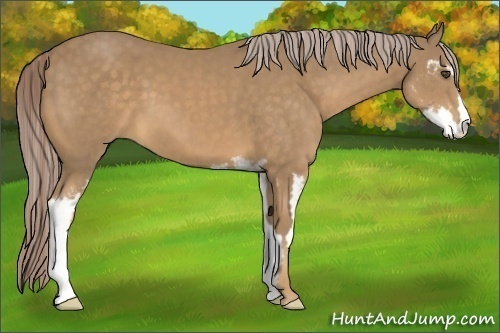
1193564
S+ also does amazing things with DP. I will cover them when we get to the hidden genes! -
Pangere:
Pangere slightly lightens the red pigment in a few specific spots on red based or bay based horses. Specifically it tends to lighten the muzzle and flanks/groin area. If may also lighten the lower legs and elbows/armpits.
Pangere is a simple Dominant/recessive gene.
P is dominant
p is recessive
Any horse with P and red pigment may display some level of lightening in the areas discussed above. The lightening may be very subtle or may be covered up by markings. It doesn’t affect black horses.
I find pangere a bit difficult mostly because I just ignore it in my own breeding. I’m going to demonstrate it here on a liver chestnut. We haven’t covered what turns a chestnut into a liver yet, we will so please just bear with me here. Pangere is really obvious on livers and may be much more subtle especially on lighter or diluted horses.
Plain liver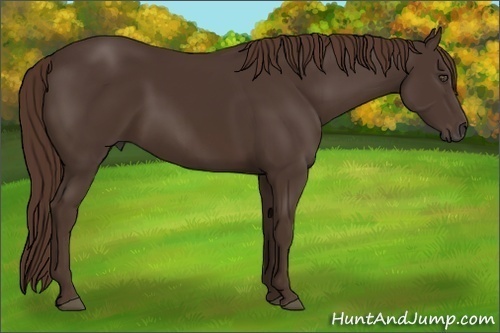
z2g DarkFire
Liver with pangere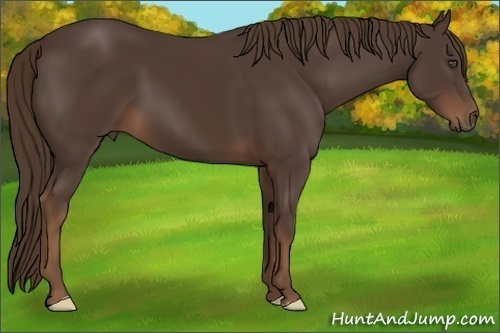
Hi C Koolaid man
-
What I am still finding hard to figure out is how the snowflake gene shows in a horse that is homo and one that is het. Maybe you could help me out with this in simple terms.
-
Well, snowflake doesn’t show at all if it’s het. And if only shows if it’s hom if you also have appy for it to act on.
-
I'm finding this thread so helpful, I have to comment just so I can reference it later.45140
-
If you click the star at the top right, it’ll bookmark it and you can reference it easier :DISO any and all Silver Pocket Watches!
God grant me the hbs to buy the ponies I need,
The fortitude to resist the shiny ones I truly don't,
And the wisdom to know there will always be more next time. -
This thread is perfect! Please continue explaining @CheersStill fumbling around this awesome game :)
I want to make a line of Grullo Splash Appaloosa Rabicano, any help would be appreciated :)
ID 47350 -
I will come do some more when I’m done yanking this season’s foals out of the pasture!
-
@Cheers I love you. this is awesome, I wish I could upvote you for these explanations. Thank you so much!
Also, I just figured out what to go for, and seeing your horses, I might just have to reconsider some choices... -
This is a great thread, Cheers! I hope more is coming soon! Having it broken down like this is making it a bit easier to figure out.~☼~Welcome to Burnt Hill Creek Farm
~*~We Breed Sporthorses.
~*~We Breed Sonoranian Thoroughbreds
~•~Our goals are True Blacks, Silver, Roans, Perlinos and Champagne. While adding Sooty where appropriate.
~•~Our goal is to breed true to life TB colors.
~☼~Visit our sister farm, Oak Branch Farm, to see Knabstruppers.
~♥~We Achieve beautiful horses through ethical breeding.
~♥~We Achieve show ponies ready for the ring.
Barn ID: 46037Thanked by 1Lallyhop -
The next gene is silver.
Silver is a simple Dominant/recessive gene that works on all Black based (black and Agouti based) colors. It does not show up on red based horses, but red based horses with dominant silver can be entered into the silver breeders club.
Z is dominant.
z is recessive.
Z will give you a silver colored mane and tail and also varying degrees of general lightening to the body coat color. Silver works on all of the various other diluting genes, like dun and champagne. Silver also seems to increase the incidence of dapples, much like sooty can.
So, examples:
Silver Black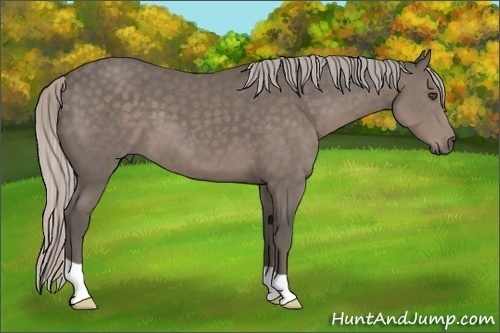
DS Why Why Why
Silver Bay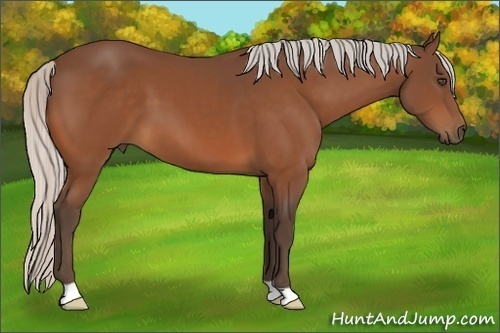
1339674
Silver Brown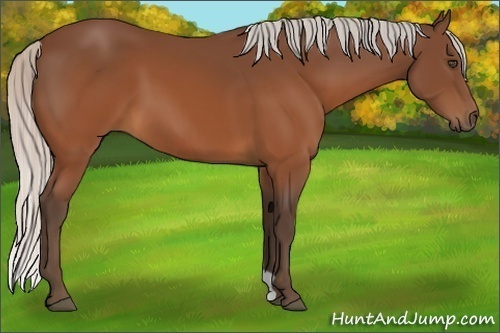
1399631
Silver Grullo (silver black dun)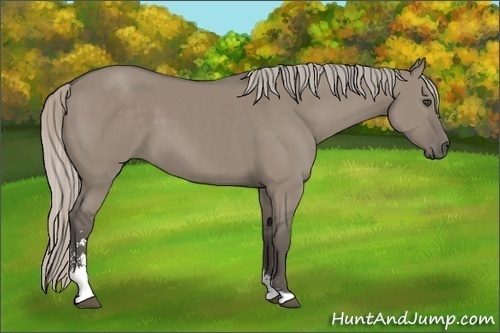
1339789
Silver bay dun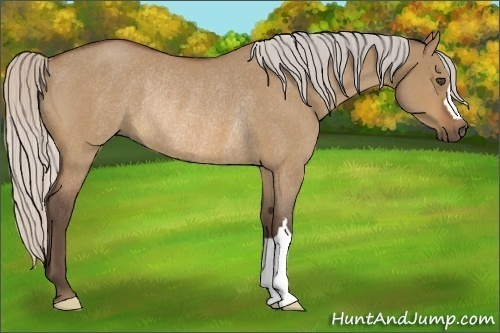
DC Prime Tobacco
Silver brown dun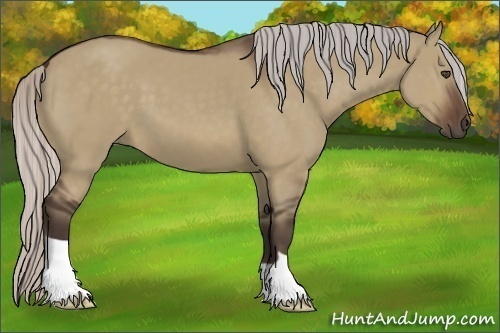
1365106
-
Champagne is another simple Dominant/recessive gene that is a dilution gene. Champagne works on all base colors.
Champagne turns eyes green/hazel unless the blue of Hom cream or splash or the red of Chinchilla overrides it.
Champagne lightens the body coat color, and the mane and tail.
Champagne colored horses get special color names.
Black based champagne is Classic Champagne.
Bay based champagne is Amber Champagne.
Brown based champagne is Sable Champagne.
Red based champagne is Gold Champagne.
Ch is dominant champagne.
ch is recessive non-champagne.
Classic Champagne (check out those reverse dapples! Swoon!)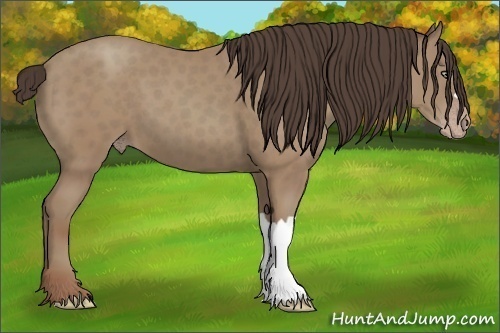
WO2 Classic Music
Classic Champagne with no dapples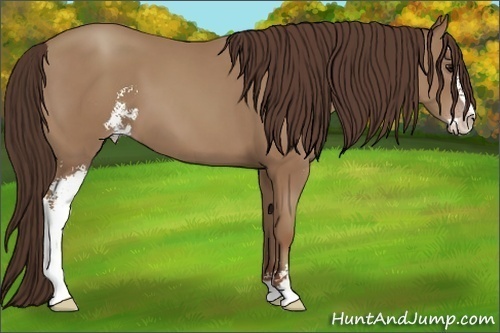
NC High Lord
Silver Classic Champagne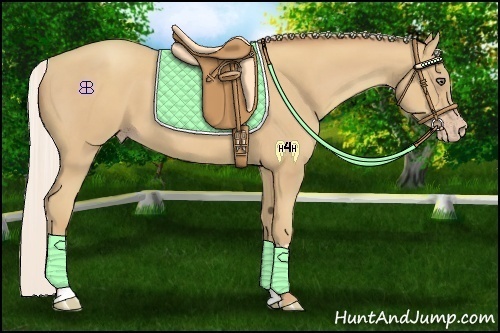
BBF Colored Rain
Classic Champagne Dun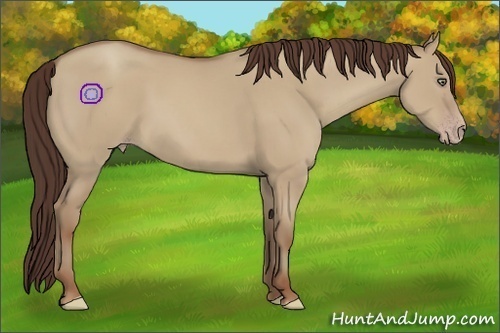
HE Ashes on the Moon
Classic Cream Champagne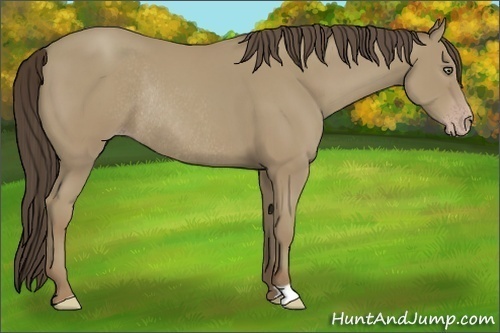
Year55Foal5
Silver Classic Cream Champagne Dun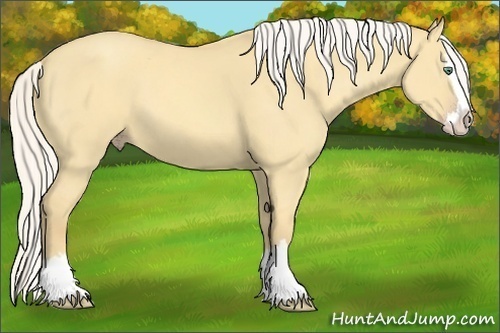
StormTolledo
Amber Champagne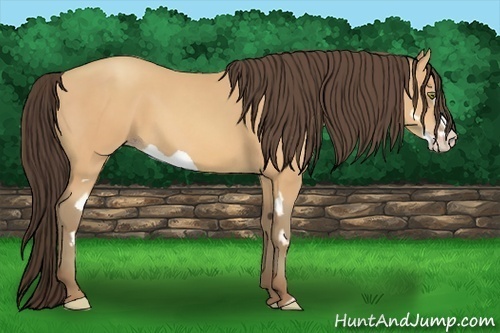
3G SAA 1419396
Silver Amber Champagne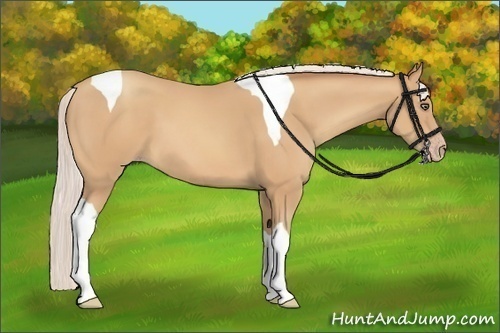
ER Holiday Memory
Amber Champagne Dun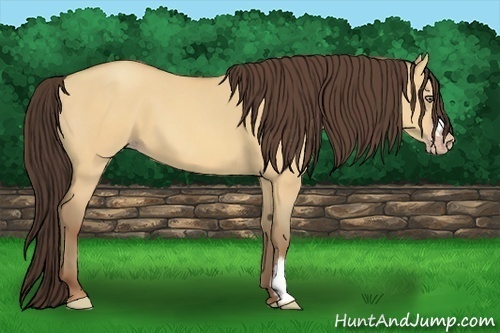
3G SAAF 1458717
Amber Cream Champagne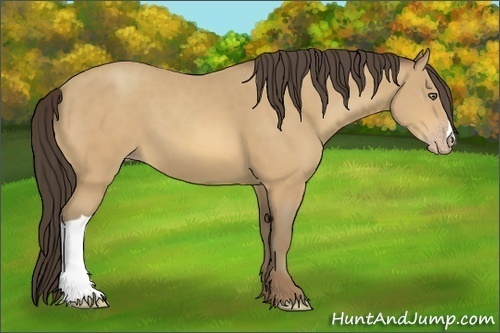
Nobility 3G R $
Silvr Ambe Cream Champagne Dun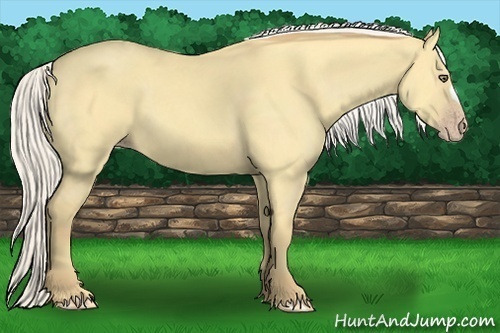
Colorwild
-
Sable Champagne Ata
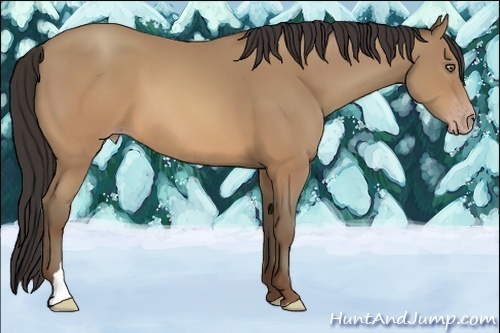
1439387
Sable Champagne AtAt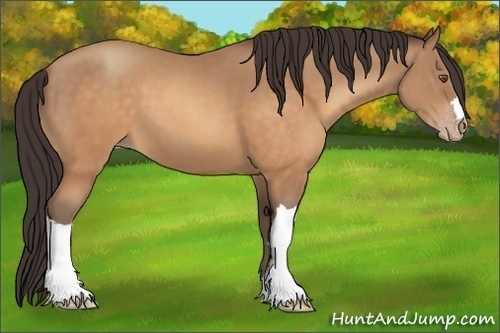
3G1678464B
Silver Sable Champagne Ata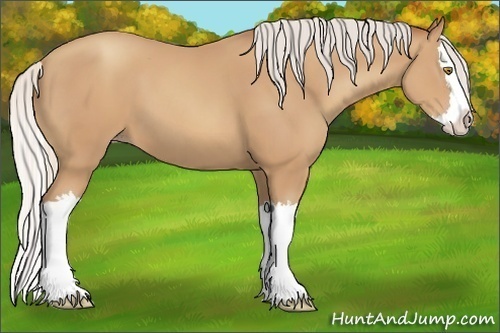
AS3 1459694 11c M BL
Silver Sable Champagne AtAt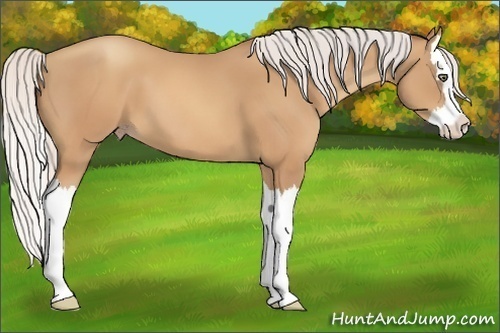
z1518677
Sable Champagne Dun Ata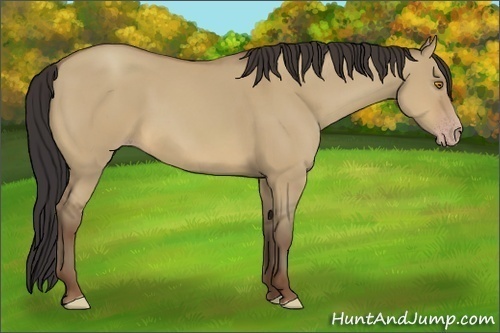
AS3 1459709 109c M BL
Sable Champagne Dun AtAt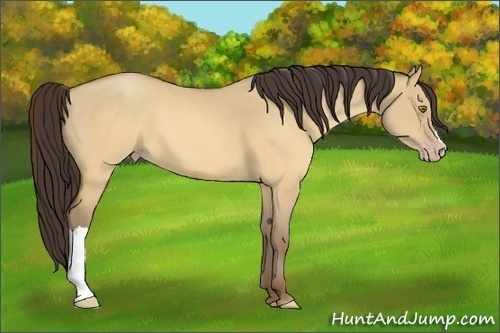
CA 2145625 SaChD
Sable Cream Champagne Ata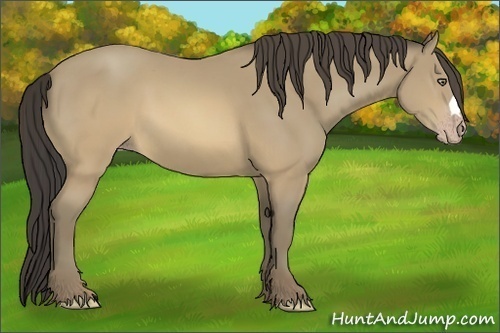
DK3 Couronne
Sable Cream Champagne AtAt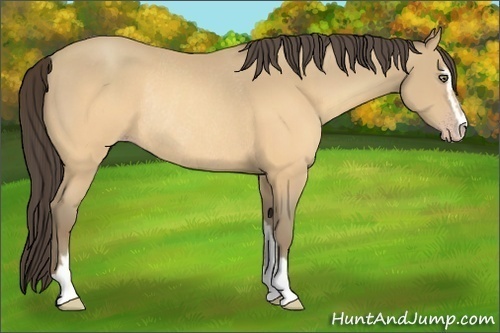
SM 1968124
Silver Sable Cream Champagne Dun Ata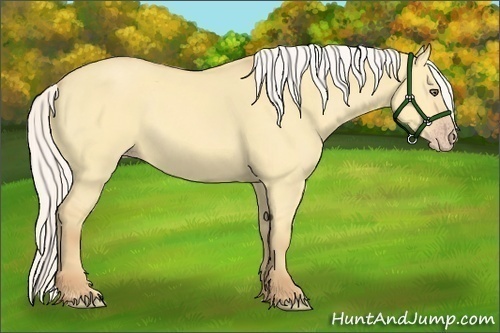
OS Monopolized Nation
Silver Sable Cream Champagne Dun AtAt
Doesn’t Exist In Game at this time.
Thanked by 1Lallyhop -
Gold Champagne
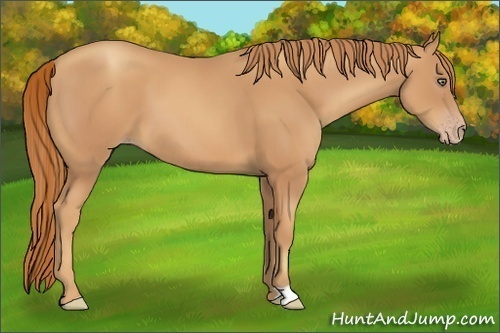
SVF Snow Gold
Gold Champagne Dun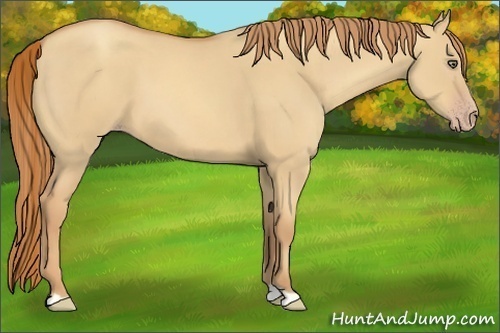
1439399
Gold Cream Champagne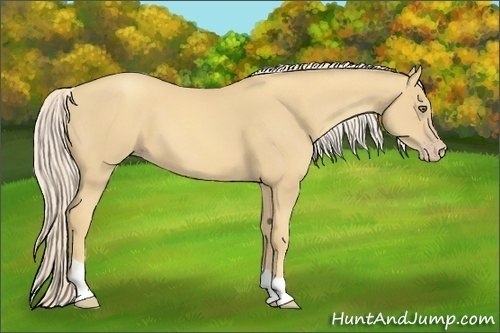
AWU3 Cristeena
Gold Cream Champagne Dun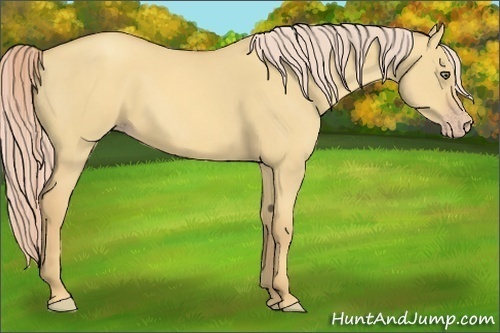
Gold Filament bm
(Remembering Silver doesn’t show on a red base, so silver gold Champagne doesn’t happen) -
Thankyou for continuing this. It is making this game much easier to understand :DStill fumbling around this awesome game :)
I want to make a line of Grullo Splash Appaloosa Rabicano, any help would be appreciated :)
ID 47350 -
Next gene is the Kit gene I think. Already scared about it!
-
Oh boy. Maybe breaking it up into multiple chunks based on type?ISO any and all Silver Pocket Watches!
God grant me the hbs to buy the ponies I need,
The fortitude to resist the shiny ones I truly don't,
And the wisdom to know there will always be more next time. -
It will definitely be a multi post gene!!!
-
Cheers, "Snow Gold", the first Gold Ch you posted, looks to also be DP.
Compare this unlikely DP Gold: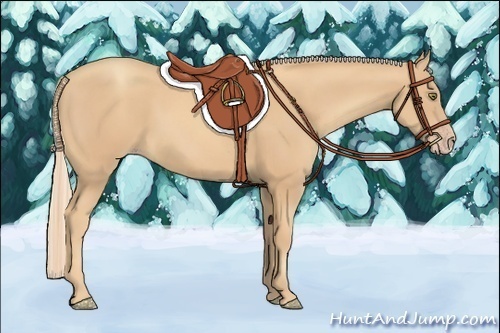
Cristal Gold Label
to this known het DP Gold: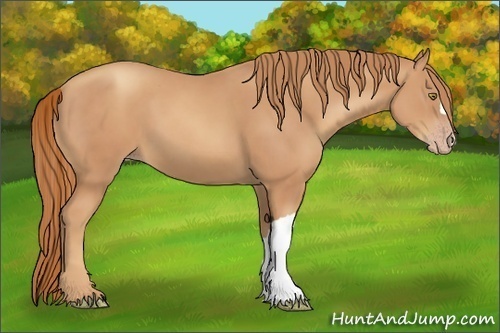
2 Gewurztraminer
and a Freaky Friday, who ought to be homDP Gold: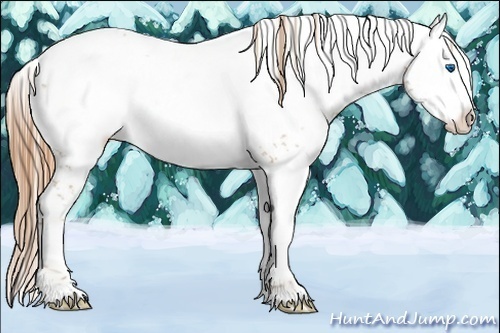
RS Gyllene Galen Fredag -
Good call. I haven’t covered DP yet and was just posting general color examples.
-
Oh, for sure! It just struck me that she wasn't quite a typical Gold.
-
Ok y’all. So, Kit patterns. What I’ve decided to do is give you an example of each Kit pattern at each White Factor. I’m not going to show you horses with two Kit patterns mixed because we’d be here for the next 6 months...nor am I going to do an extensive discussion of Kit Lethality.
What I do want to say is that all of the Kit patterns seem to be equally dominant—Sabino doesn’t override Tobiano—but that white Factor has a huge influence on how much a pattern shows. Also, W20 is less a pattern than a modifier gene, and it amps up the expression of all of the Kit patterns and also of Splash and Rabicano.
If you want to learn more about mixing Kit patterns and the things that are risky about mixing patterns, please look at this thread for Ammits discussion of Kit Lethality:
http://hj2.huntandjump.com/forum/discussion/13757/new-kit-lethality-and-kit-mutation-load-explained#Item_23
Or look at the section of the FAQ devoted to Kit Lethality.
One more thing: like W20, Frame modifies the expression of the various Kit Patterns. I will give examples of this when we get to Frame and not in this Kit section. -
So the first Kit Pattern is Tobiano. Tobiano is what a lot of us think of when we think of a “paint” or “pinto” horse. It involves large blocks of the horse’s base color along with large blocks of white. Generally Tobiano horses have white legs and a white markings over the withers where a saddle would go and a colored head, though obviously a minimal Tobiano will have very little white and an extensive Tobiano will be mostly white. Tobiano is pretty safe to mix with other patterns even at high expression. Tobiano is always in the GMT lab.
The notation for Tobiano is Kitto.
Tobiano White Factor None: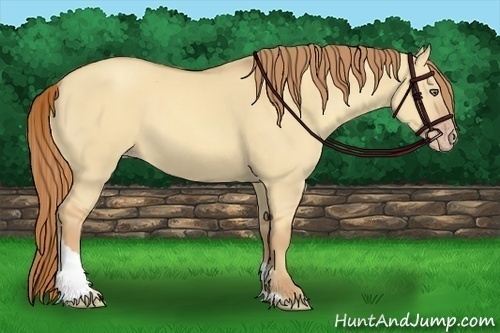
Free Bird Dun It
Tobiano WF Minimal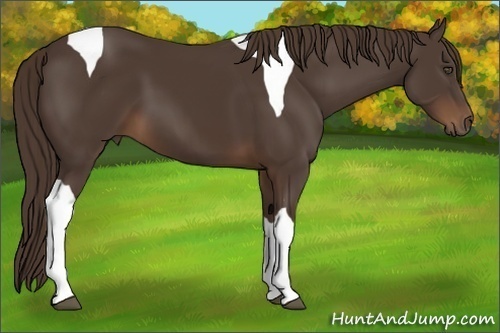
HC Diamond Sunset Show
Tobiano WF Light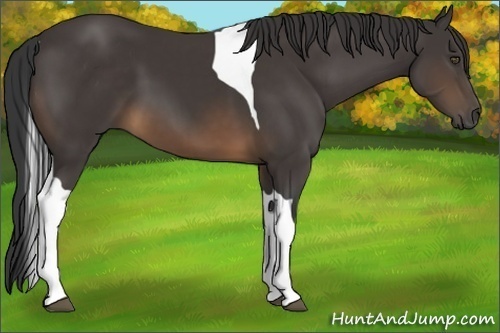
III Out of Luck
Tobiano WF Medium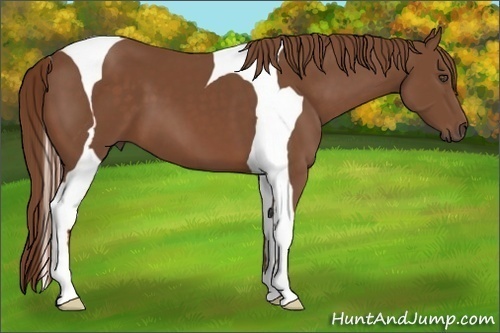
1336154
Tobiano WF Large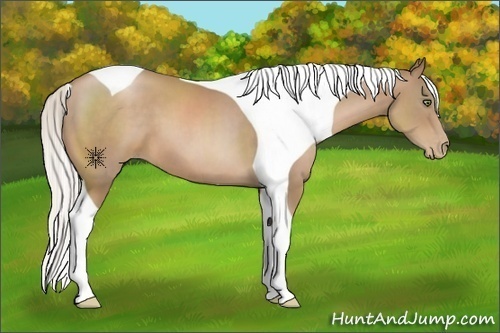
1340067
Tobiano WF Extensive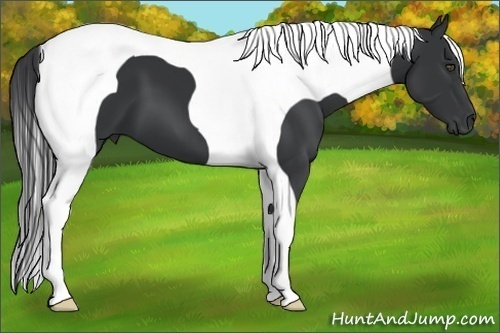
Splashed Rain G6
Tobiano has its own Breeders Club -
Roan is the next pattern. Roan horses have white hairs speckled throughout their coat, mostly on the body and less on the head and legs. In the game, Roan has extremely variable expression that does not seem directly related to any testable factor including White Factor... Roan horses may or may not have “corn spots” or dark patches of seemingly normal coat mixed in with the roan markings, visually similar to Appaloosa spots. It has been theorized that corn spots are scars on real horses. I *think* they are genetic in the game and that you can breed for them, but I’m not sure!
Roan is one of the safest Kit Patterns as far as mixing them together goes. It has its own Breeders Club and is always available in the GMT Lab.
One roan anomaly is that black horses with roan are called “blue roan”. Think of this a little like “blue tick hounds, Blue heelers” in the dog world. These are black horses/dogs with a roan type pattern that visually look lighter than black now but not gray really either. So they’re called “blue”. In real life you will occasionally hear red roans called strawberry roans, but here in game they are red roan.
Roan is Kitr
Roan White Factor None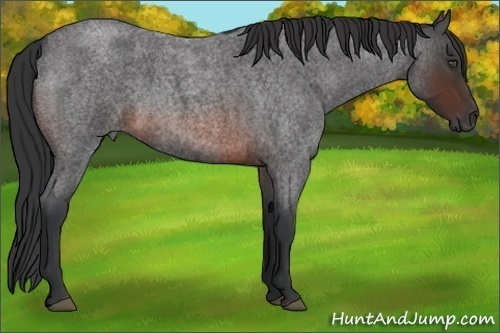
G2 MHF1336658
Roan WF Minimal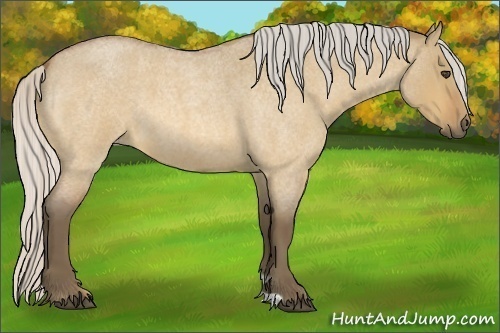
AR Timer is Tickin
Roan WF Light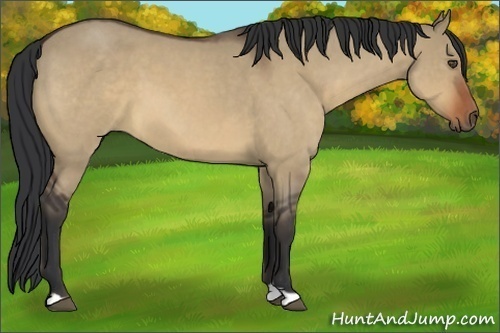
New Instruments G7
Roan WF Medium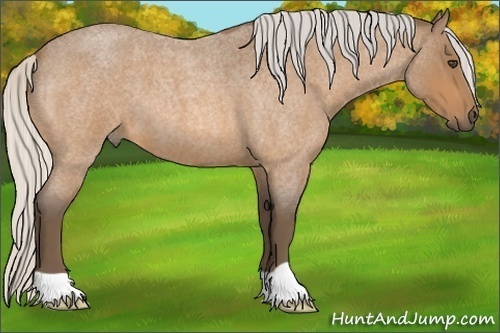
WR BitterSweet Moon
Roan WF Large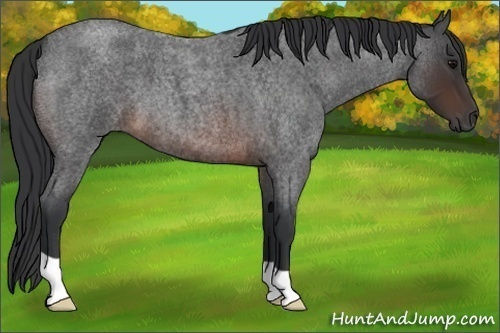
1358219 y
Roan WF Extensive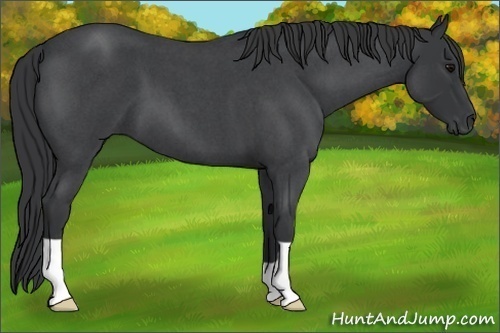
4g 1336842
I swear that’s the first Extensive in my search and its just random that it’s the lowest expression in the list!
Good example of corn spots: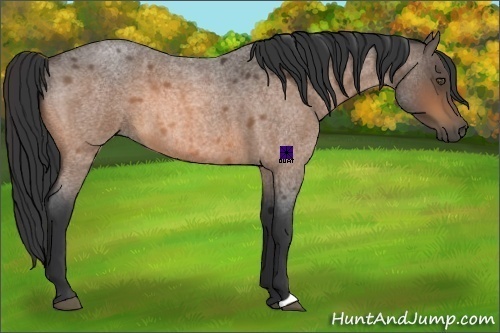
SH 1339514 -
White Spotting 1 is the next pattern. In game it’s usually referred to as W1 or White 1. All of the white spotting genes are expressed in the color name as “white spotted —insert base color here—“. (Except W20 which doesn’t get mentioned in the color name at all).
W1 is one of the more dangerous patterns to mix because it tends to have quite strong expression. It looks similar to splash and W10, in that the bottom section of the horse is white, the top is the base color. The border between the two is usually somewhat speckled, or roanish.
W1 has its own Breeders Club and is always in the GMT Lab.
W1 is KitW
W1 White Factor None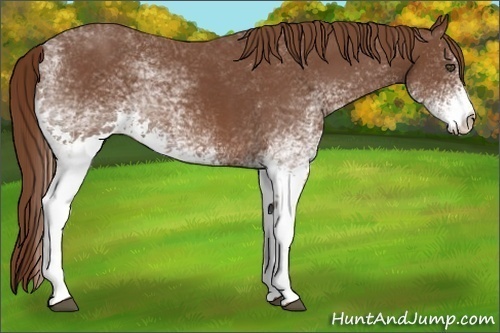
CFF LowSpots
W1 WF Mininal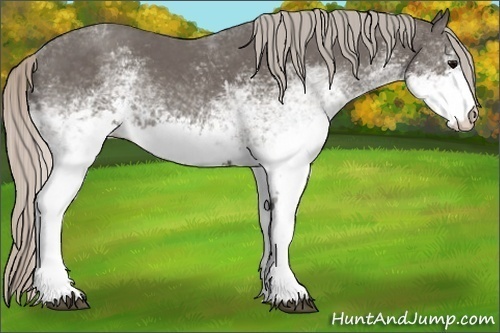
1364448
W1 WF Light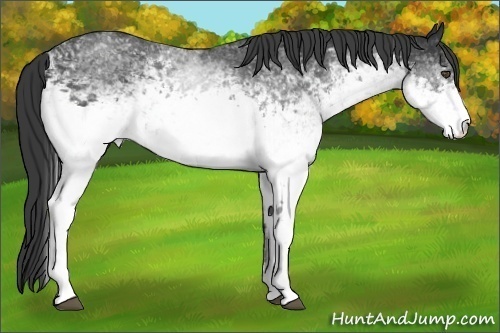
1364452
W1 WF Medium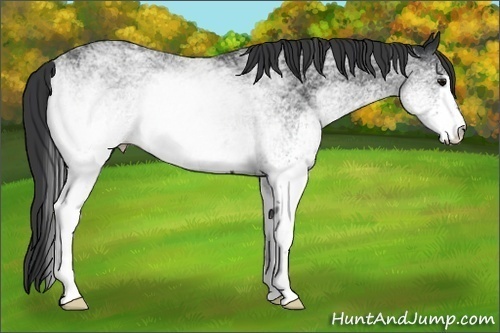
2G A Fogged Quiet
W1 WF Large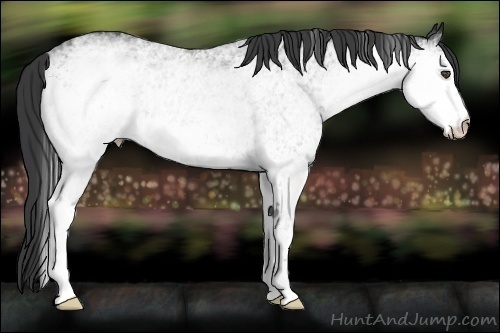
Ladies deer
W1 WF Extensive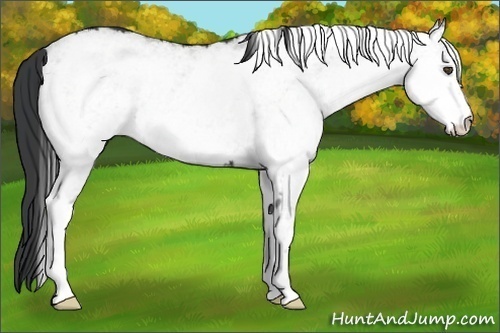
4g 1336843





















